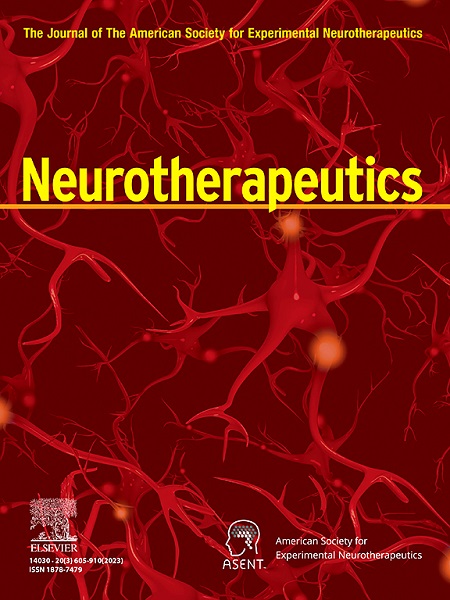特邀评论:年龄的影响:何时改变,何时停止治疗。
IF 6.9
2区 医学
Q1 CLINICAL NEUROLOGY
引用次数: 0
摘要
年龄≥55岁的老年患者几乎占MS总人数的一半。虽然局灶性炎性脱髓鞘过程和进行性过程,如区隔性中枢神经系统炎症、神经退行性变性和代偿机制失效,从疾病发病开始就同时发生,但主要疾病过程发生转变,在生命的第五个十年出现显著的临床进展。在临床上,这表现为随着MS患者年龄的增长,临床复发和MRI活动减少,与复发无关的缓慢残疾进展增加。由于疾病修饰疗法已经证明对减少复发有效,但不是中央介导的进展过程,DMT的益处随着年龄的增长而减弱,因为潜在的生物疾病过程发生了变化。相比之下,由于与年龄相关的生物学变化,DMT的风险增加,基于风险-收益比,切换或停止DMT的考虑在临床上变得更加重要。本综述将涵盖老年MS患者使用DMT的证据,并讨论MS患者管理中的年龄考虑因素。本文章由计算机程序翻译,如有差异,请以英文原文为准。
Impact of Age on Switching or Stopping Disease Modifying Therapies in Multiple Sclerosis
Older patients age ≥55 account for almost half of the total MS population. While focal inflammatory demyelinating processes and progressive processes such as compartmentalized CNS inflammation, neurodegeneration, and failure of compensatory mechanisms co-occur from disease onset, there is a shift in the predominant disease processes with notable clinical progression occurring in the fifth decade of life. Clinically, this manifests in reduction in clinical relapses and MRI activity as persons with MS age, with an increase in slow disability progression independent of relapses. As disease modifying therapies have demonstrated efficacy on relapse reduction, but not centrally mediated progressive processes, the benefit of DMT wanes with age due to change in underlying biological disease processes. Contrastingly, risks of DMTs increase due to biological changes related with age, setting up a scenario where considerations on switching or stopping DMT become more clinically important based on risk-benefit ratios. This review will cover evidence regarding DMT use in older patients with MS and discuss age considerations in the management of patients with MS.
求助全文
通过发布文献求助,成功后即可免费获取论文全文。
去求助
来源期刊

Neurotherapeutics
医学-神经科学
CiteScore
11.00
自引率
3.50%
发文量
154
审稿时长
6-12 weeks
期刊介绍:
Neurotherapeutics® is the journal of the American Society for Experimental Neurotherapeutics (ASENT). Each issue provides critical reviews of an important topic relating to the treatment of neurological disorders written by international authorities.
The Journal also publishes original research articles in translational neuroscience including descriptions of cutting edge therapies that cross disciplinary lines and represent important contributions to neurotherapeutics for medical practitioners and other researchers in the field.
Neurotherapeutics ® delivers a multidisciplinary perspective on the frontiers of translational neuroscience, provides perspectives on current research and practice, and covers social and ethical as well as scientific issues.
 求助内容:
求助内容: 应助结果提醒方式:
应助结果提醒方式:


